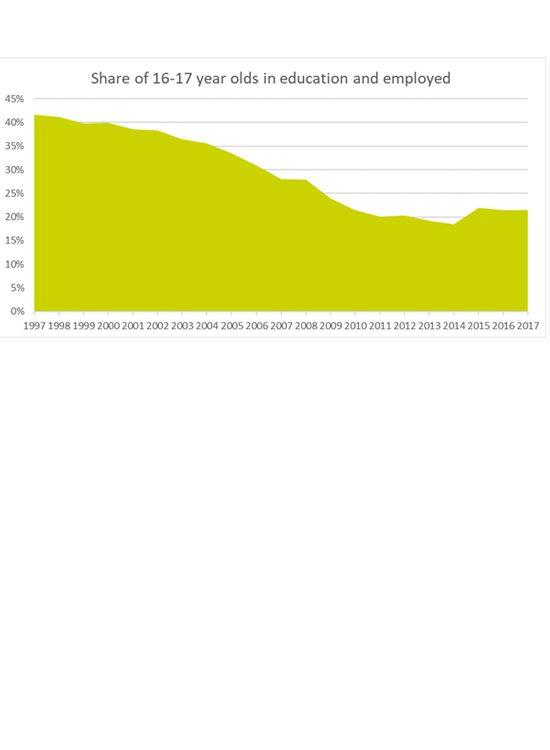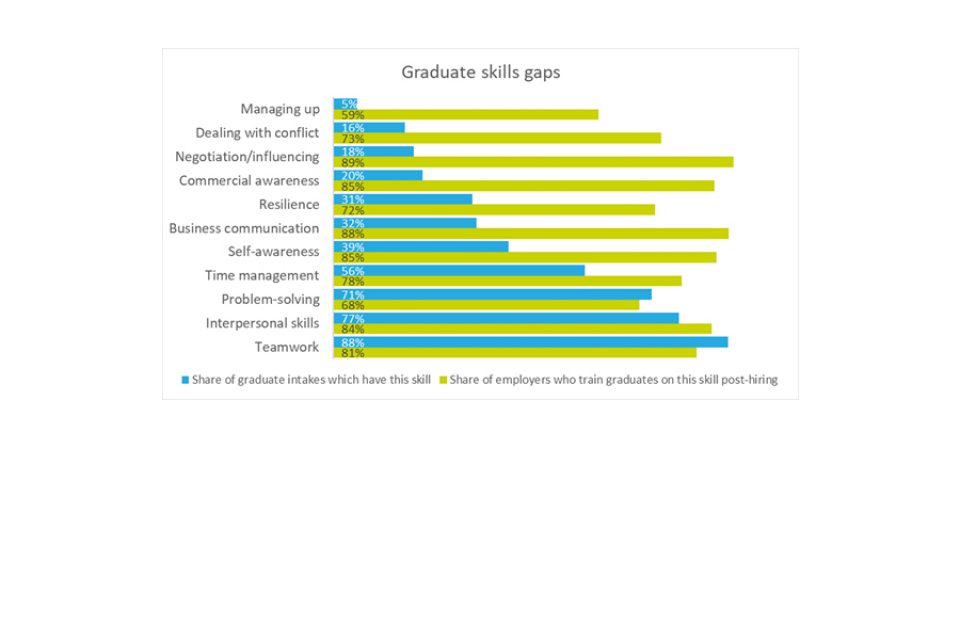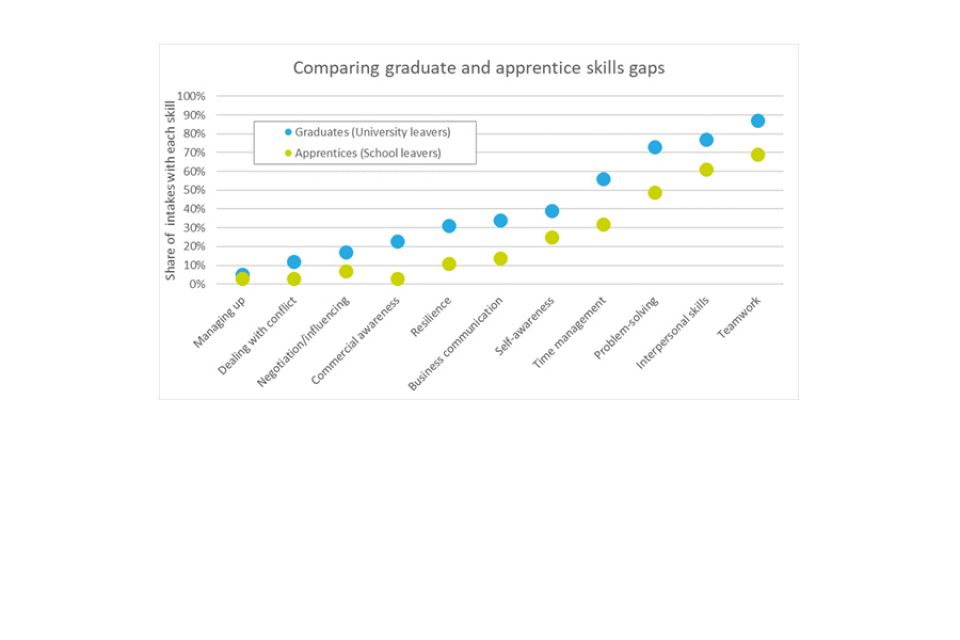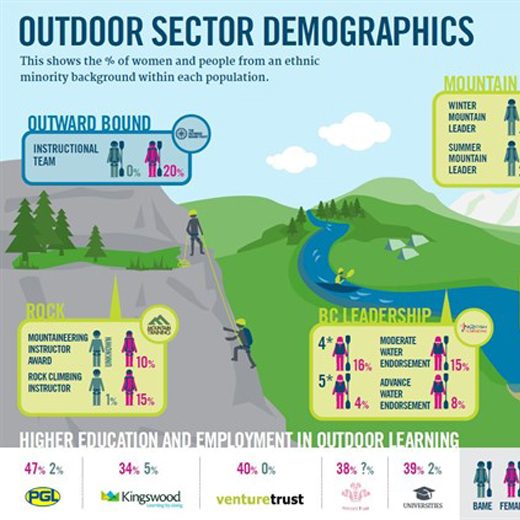ISE Development survey results: what soft skills do successful students need?
ISE is an independent, not-for-profit member organisation that brings together employers, the education sector and supplier partners, providing leadership and support in all aspects of student recruitment and development.
In his role as Research Analyst, Samuel captures industry-wide trends and regularly shares these with hundreds of organisations so that they can make well informed decisions around students.
Here’s a question to ponder in a moment of spare time. How many of you remember your first day at work? Do you remember what it felt like to arrive? The look and sounds of the building you entered? Can you visualise the faces of the people you were with?
For me, it's years ago now, but I can still mentally flip back to the start of my first day on my graduate scheme, arriving at a relocation event to meet my peers. I still have some sense of the experience of getting off the train and into a taxi and even the first two other graduates I met at the time. The experience was a formative one. An adventure, of sorts.
Many young people embark on a similar adventure each year. Their first six to twelve months are formative too, because moving from university to work can be a major culture shock. The routines are different, the expectations are more ambiguous, and the goals and interests of their colleagues are far more diverse. There is a lot to learn and it can take them a while to fully adjust.
Today’s young workforce are also less prepared for work. According to the Office of National Statistics, the share of school students with some employment (say, a Saturday job) has been going down quite steadily for at least the last 20 years. Students appear to be focussing more on their studies and on extra-curricular projects. By the time they start their working life, many of them have a steeper learning curve than we did. It may be harder for us to put ourselves in their shoes.
TODAY'S YOUNG WORKFORCE ARE LESS PREPARED FOR WORK. THE SHARE OF SCHOOL STUDENTS WITH SOME EMPLOYMENT HAS BEEN GOING DOWN STEADILY FOR 20 YEARS. BY THE TIME THEY START WORK, THEY HAVE A STEEPER LEARNING CURVE THAN WE DID. IT'S HARDER FOR US TO PUT OURSELVES IN THEIR SHOES.

This difference in their experience matters. It matters for employers and for those of us working with young colleagues. To help them adjust and to help them perform, we need to be paying more attention. They are still as capable and bright as they were in the past. But they are likely to need more focussed support as they move through that first phase of their career.
To help, the ISE has been doing some work on the skills which young people do and don’t have. We surveyed our employer members and asked for their informed views. Only half of the respondents – which recruit both large and small intakes and over 14,500 graduates a year – state that graduates generally have the soft skills they expect. Gaps in soft skills pose a major challenge.
Graduate soft Skills Gap
The chart left shows the share of graduate intakes with specific skills. This is based on employer views of their new hires and is already being used within the industry. It is a guide, to help you figure out where to focus. Students who want to succeed would gain from knowing about these skills, and from being trained on them.
There are a lot of gaps which may need to be closed. For example, just 39% of graduate intakes are perceived to have self-awareness, which includes understanding their strengths and weaknesses, their impact on others, and being able to adjust their behaviour in response to feedback and cues. Only 5% have “managing up”, which is (broadly) knowing how to work with a boss. It may be worth reviewing which skills are the most important for different jobs.

APPRENTICE SOFT SKILLS GAP
Apprentices have similar gaps in soft skills although the extent of these is larger. For example, only 32% of apprenticeship intakes are seen to have time management, compared to 56% of graduate intakes. Because these apprentices are generally recruited directly from school, they tend to be younger than graduates and many are still developing their basic work-readiness. Apprentices with the skills below could be more likely to hit the ground running and to make an impact.

CLOSING THE GAPS
Improving these skills in young people is going to take focused and coordinated work. Organisations are already investing. Employers typically offer eleven days of on-the-job soft skills training across two-year development programmes, 37% use experiential learning as part of this, and more are training on areas like business communication. Specific skills gaps appear to be starting to close.
Some work can be done at school level too. Many students seem to pick up the required levels of teamwork and interpersonal skills at school already (see above graph). Almost three in four employers run employability outreach with schools to improve the readiness of students. Internships have value, as interns are more likely to have the skills that employers expect, and 16% of employers improved their internship development as a way of closing skills gaps in 2017. These initiatives can be built on.
Starting work will remain an adventure for many. We want these young people to remember their learning curve as an exciting, formative and positive experience. In cases where their experience may be hard to relate to, this new data can help us to focus. Let’s help them succeed and to help us succeed too.
YOU MIGHT ALSO LIKE...
For more data and trends visit ise.org.uk
If you would like to feature as a guest blogger for The Outward Bound Trust please contact us.


